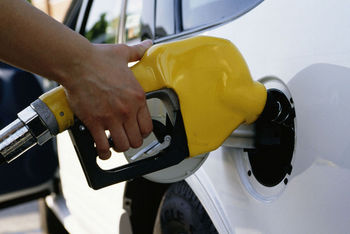
| Monday, July 02, 2012 | Archives | Advertise | Online Buyer's Guide | FLEETSolutions |
Fleet Managers: Facing Up To The Costs Of Austerity In Britain
 America's fleet managers, take heart. A recent report finds your counterparts in Britain feeling your pain in equal measure. With both diesel and gasoline costs hitting record highs, the majority of fleet managers in Britain have their eye on only one thing – their bottom lines. According to Alphabet's Fleet Management Report 2011, fifty-one percent of the two hundred fifty fleet decision-makers interviewed were shunning all other considerations to focus on expense. (Alphabet is the international multi–brand fleet management division of BMW Group.) America's fleet managers, take heart. A recent report finds your counterparts in Britain feeling your pain in equal measure. With both diesel and gasoline costs hitting record highs, the majority of fleet managers in Britain have their eye on only one thing – their bottom lines. According to Alphabet's Fleet Management Report 2011, fifty-one percent of the two hundred fifty fleet decision-makers interviewed were shunning all other considerations to focus on expense. (Alphabet is the international multi–brand fleet management division of BMW Group.)Such a mindset shouldn't really surprise anyone – while fifty percent of managers reported that overall costs remained the same over the past year, eighty-three percent stated that their fuel costs have soared. More importantly, the results of the report suggest an industry that is either cautiously optimistic (in the private sector at least) or knuckling down for more bad news over the coming months. The report reveals that managers aren't simply sitting waiting for the axe to fall. Instead, they are pushing out into new areas to find cost savings. Most popular is examining the business trips taken by employees, with forty-eight percent of managers now closely monitoring and investigating driver movements; in particular, their exposure to "grey" fleet risk with twenty-eight percent of managers reducing grey fleet mileage rates. Some forty percent of fleet decision-makers have also introduced more fuel efficient vehicles, while the use of fuel cards is on the increase with thirty-five percent of the managers surveyed signing up to company fuel cards in the past year to save money and monitor employee expenditure. While the cost of running a successful fleet remains the priority, a key concern for managers was driver health and safety with seventy-one percent stating that it was their principle concern. Issues such as speeding and mobile phone use at the wheel were serious issues for many managers. Many are choosing to bypass positive measures to tackle bad driving habits, and are instead utilizing a penalty-based approach; for instance, drivers could be financially penalized for any wear-and-tear charges incurred at the end of a contract. Road to Recovery? - The report highlighted a universal truth even in this age of austerity; that mileage incurred by company fleets is unlikely to drop despite the increase in fuel costs, with only three percent believing that they are in a position to reduce overall yearly mileage. Perhaps more worryingly, seventy-five percent of managers say they will be sinking the same or more time into sorting out their fleets over the next twelve months; even though thirty percent of companies are expecting their fleet sizes to be reduced over the course of 2012. Key Results in a Nutshell - Listed below are the responses to Alphabet's question, "Which of the following are your biggest concerns regarding your fleet operation":
|
 |
NAFA Fleet Management Association 125 Village Blvd., Suite 200 Princeton, NJ 08540 Telephone: 609.720.0882 Fax: 609.452.8004 |








